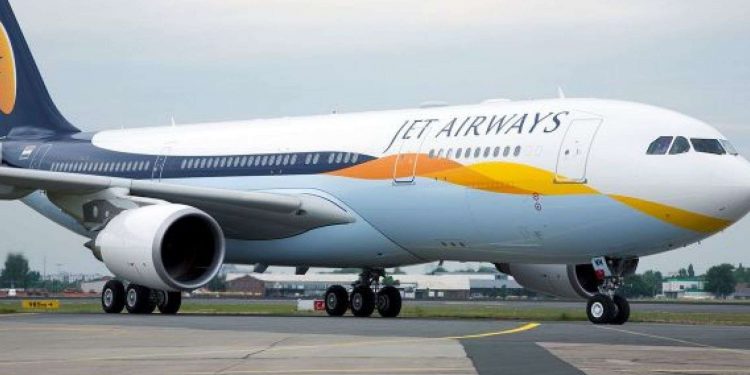New Delhi: Lessors to India’s Jet Airways Ltd are planning to ask the country’s aviation regulator to de-register many more planes leased to the airline, three sources told Reuters, signalling that a planned bailout of the troubled carrier is failing to assuage their concerns.
About six of Jet’s lessors are likely to apply to the Directorate General of Civil Aviation (DGCA) to de-register up to 15 of the grounded planes, over the next 10 days, said one of the sources with direct knowledge of the situation.
Once a plane is de-registered, the lessors are free to take them out of the country and lease them to other airlines.
While some lessors have already taken a few planes out of India after a mutual agreement with Jet, sources have told Reuters, the latest series of applications to the DGCA would be on a non-consensual basis.
Jet did not immediately respond to a request for comment.
Jet, India’s oldest private carrier now controlled by its lenders, has had to ground more than three-quarters of its fleet of 119 planes, many due to non-payment to lessors, leading to hundreds of flight cancellations.
Avolon, one of the world’s biggest aircraft lessors, on Thursday applied to the DGCA to take two of its planes placed with Jet outside of India, making it the first to pull planes out on a non-consensual basis.
About 100 of Jet’s 119 mainly Boeing Co planes are leased by companies such as Avolon, GE Capital Aviation Services (GECAS) and Aercap Holdings. It was not immediately clear which of the lessors were planning to apply for de-registration in the coming days.
—pti
IOC resumes fuel supply to Jet after assurances
New Delhi/Mumbai, April 5: The country’s largest oil marketing company (OMC) Indian Oil Corporation (IOC), after announcing stoppage of fuel supply to the struggling carrier Jet Airways for non-payment of dues, resumed supply within hours, preventing further disruption of services of the airline.
According to a senior IOC official, the OMC had stopped fuel supply to Jet Airways for some time Friday but restarted the same after receiving assurances over payment of dues from the airline. However, the details of the assurances have not been shared.
Jet Airways is already in the midst of a severe liquidity crisis that has affected its operations and resulted in the grounding of several of its aircraft. The airline is currently operating just 26 aircraft as several planes from its earlier fleet size of around 120 remain grounded for non-payment of lease rentals.
Industry insiders said: “The two companies (IOC and Jet) have a very long standing business relationship and based on that, an understanding has been reached. Another factor here is that since a consortium of banks led by the State Bank of India (SBI) is involved in the resolution process, further disruptions are being avoided.” The development comes a day after the lenders to the cash-strapped airline said that they intended to pursue the bank-led resolution plan for the airline under the present legal and regulatory framework.
However, the lenders did not divulge any information about the present funding needs of the airline.
Under the debt resolution plan, the lenders would inject up to Rs 1,500 crore of working capital into the airline and convert their debt into equity to revive the airline and then sell their stake in it.
The airline owes over Rs 8,000 crore to the lenders, led by the SBI. At present, the airline is hard-pressed for funds. It is expected to receive the first tranche of Rs 1,500 crore promised by the banks as part of the debt resolution plan.
According to industry sources, the first tranche of fund is expected in a day or two. But without further funding, the airline’s fleet size is expected to shrink further.
The airline has been struggling with cash flows for the past six months because of rising fuel costs and intense competition. To keep the company running, it has even delayed payments to the lessors, airport operators and OMCs besides a part of its workforce.
On Wednesday, the airline informed its employees that the salaries for March will be delayed. Salaries are pending since January.
—ians







































